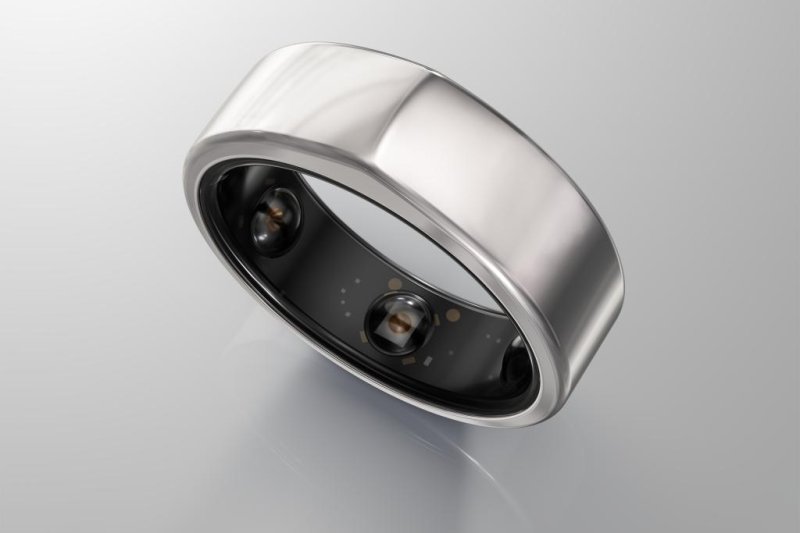A new study will evaluate Oura ring's ability to help predict COVID-19 outbreaks among health workers. Photo courtesy of Oura Ring
May 28 (UPI) -- Researchers at Florida Atlantic University this week announced plans to begin studying a new device that might help spot future outbreaks of COVID-19 and other infections among healthcare workers and, eventually, the public.
The wearable technology, called the Oura ring, is intended to track the body's heart rate, temperature, movement and sleep patterns. The measurements, when combined with responses to daily symptom surveys, can assist clinicians to predict the onset of illness, researchers said.
FAU researchers said that a study designed to assess the effectiveness of the Oura ring will begin as soon as possible.
"The hope is that we can develop a predictive algorithm from the ring data that will be useful in alerting individuals, as well as populations experiencing outbreaks," the project's principal investigator, Janet Robishaw, told UPI.
"The earlier that outbreaks are identified, the faster mitigation interventions can be used to contain the infections and prevent them from spreading," said Robishaw, who is senior associate dean for research at Florida Atlantic's Schmidt College of Medicine.
New data released Thursday by the U.S. Centers for Disease Control and Prevention estimated that more than 60,000 American healthcare workers have been infected with the new coronavirus, SARS-CoV-2, and that 300 have died as a result.
The Florida Atlantic research is part of TemPredict, a study led by researchers at the University of California-San Francisco. The manufacturers of the Oura ring are sponsoring the study and providing more than 2,000 healthcare workers with the product.
Users of the Oura ring also can register to participate in the study, using the company's app or by signing up online.
The Oura ring is a thick, silver ring that resembles a wedding band, according to the Florida Atlantic researchers. It is worn around the clock to continuously provide data in real-time.
As part of TemPredict, the data will alert users and the researchers of physiological changes that might indicate they are developing an infection.
The university's research team will incorporate two additional phases in the study by determining if participants go on to develop an acute COVID-19 infection and by determining the prevalence rate in the study population.
They are currently in the first phase of the study, with clinical physicians, resident physicians and fellows from the school's Schmidt College of Medicine who are caring for patients on the frontline of the pandemic and wearing the ring.
The study will take 12 weeks to complete. Participants also will undergo weekly viral testing to detect if they have an acute COVID-19 infection, using a new COVID-19 viral test developed by Robishaw and her colleagues that evaluates saliva instead of using a nasal swab.
At six and 12 weeks in the study period, Florida Atlantic researchers will perform blood tests on study participants to identify whether they have developed an immune response to COVID-19. The university's portion of the TemPredict study plans to recruit some 200 participants.
As funding becomes available to purchase additional Oura rings, Robishaw hopes to extend the study to assisted living and skilled nursing facilities.
"Our next studies will target nursing homes and college dormitories, where many people are living in close contact and early detection will be most effective," she said.















